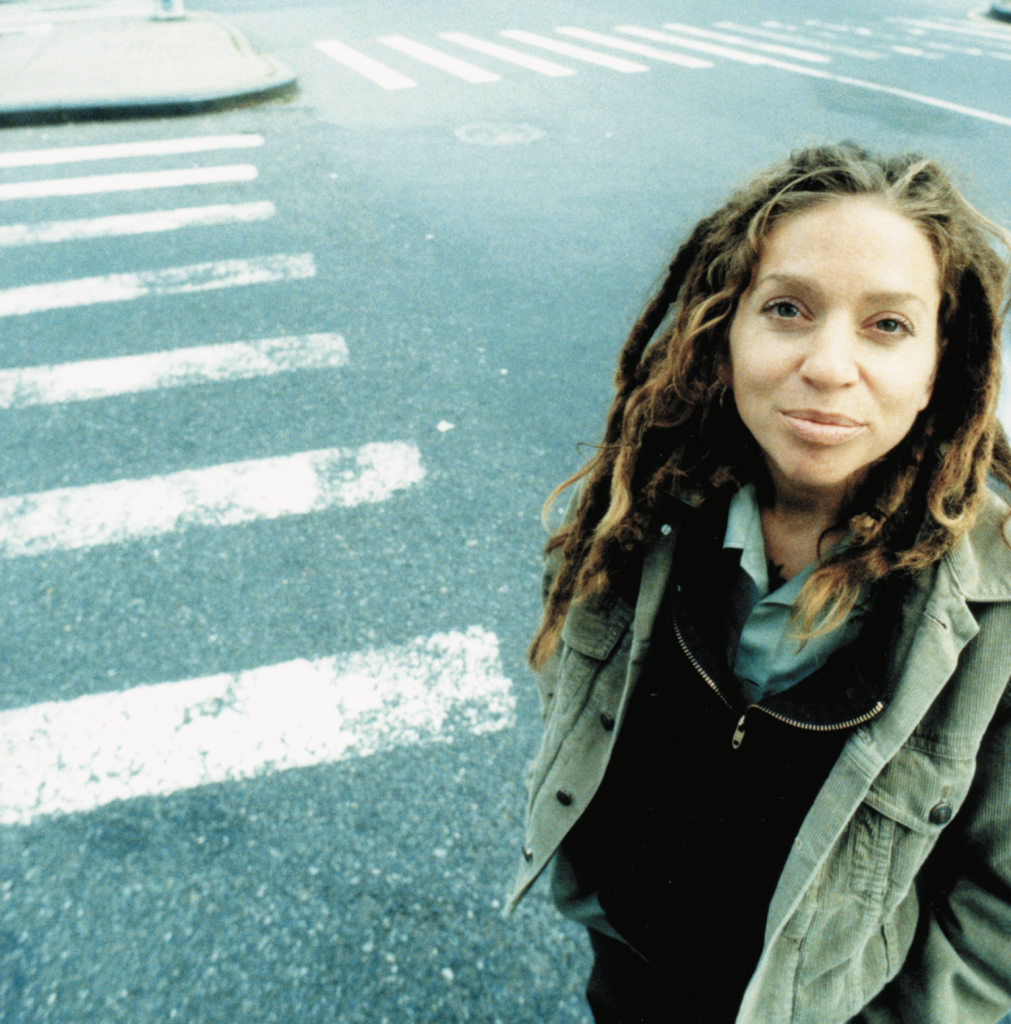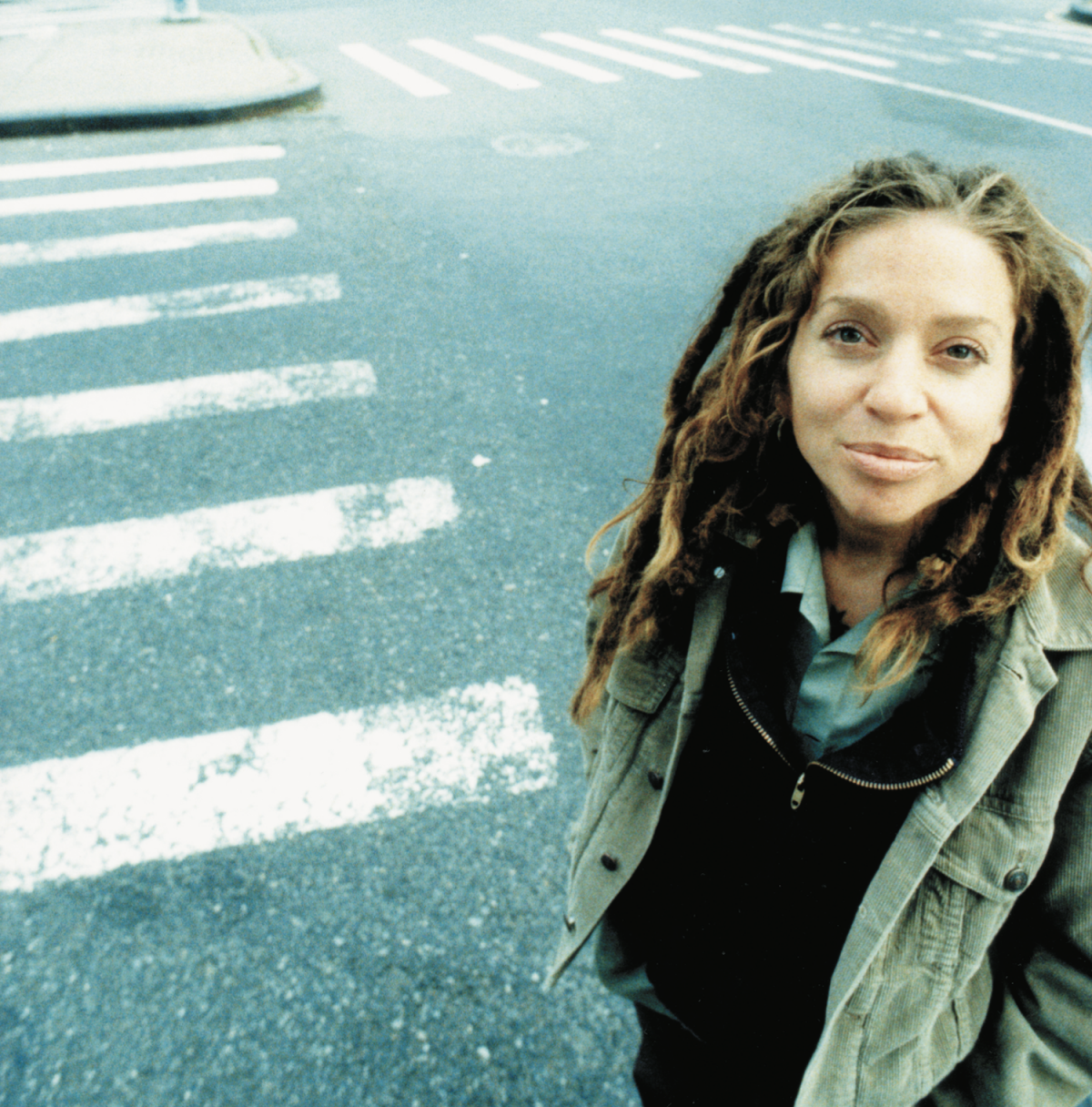
Ani DiFranco doesn’t read her own press, and it isn’t hard to see why. On her self-titled 1989 debut, the then-19-year-old DiFranco sang, “Taken out of context, I must seem so strange,” predicting the stream of misconceptions she’d face over the next 15 years. Accusations of man-hating, selling out to heterosexuality, militancy, naiveté and cunning business sense have sketched DiFranco as a one-dimensional symbol, like the cartoon chick who proudly flexes her muscles in the logo of DiFranco’s Buffalo, N.Y.-based Righteous Babe Records. But DiFranco’s lyrics tell her story better than anything. Possessed by uncanny self-awareness, she doesn’t merely make the personal political, she makes it really personal. She’s completely fluent on the new Educated Guess, the 13th studio album to bear her name alone. For the first time since 1996’s Dilate, the splintered noise DiFranco makes onstage translates just as sharply in the studio. Estranged from her band and husband, DiFranco takes the long walk back to herself. Alone again, her ragged, percussive guitar no longer sounds like it has Tourette syndrome; DiFranco is finally proving the spaces she leaves have their own things to say.
Before a show in Hartford, Conn., DiFranco giggled, stammered and stormed through a discussion of her career-long declaration of independence.
You’ve said revisiting your earlier albums makes you uneasy. Does that have to do with the translation from stage to studio? Or the actual songs?
The translation, for sure. It’s not the songs’ fault. [Laughs] Uneasy is at least what I get when the thought of my records comes into my mind. I do things because I am compelled to do them, and I don’t question everything when I’m doing it. I’m not trying to get it right and make it accessible or popular or polished. I just make music. That’s sort of my personality. I just like to live in the moment. And then, as soon as the moment’s over, I have an eternity to question, doubt and abhor everything. But it doesn’t really stop me. I’m much more interested in doing than perfecting.
Do you love playing solo?
Yeah. I am able onstage to sink into the songs further and to focus more and get things out of it myself, whereas with a band, it was more like hosting a party, always worrying about whether everybody’s got a drink and everybody’s happy and everybody’s together.
I’m interested to hear what you have to say about Internet piracy, since so much of the early word on you was spread through bootlegging.
Taping tapes for each other and spreading music around is one thing, but there are many different degrees of doing that, and when it gets to the point where you’re denying artists jobs making art and they can no longer survive … I mean, the record industry is imploding. We’re not talking about making mix tapes for your buddies in college. This iscbasically a paradigm shift where consumers are taking their money away from record companies and giving it to computer companies. Then there’s the idiocy of believing that all music should be free. I mean, it is: Go make it, go sing. I don’t know what it means for musicians who are trying to quit their day jobs, but it’s a scary time.
On “Animal,” you talk about the country being “infested with millionaires,” but hasn’t Righteous Babe brought you into that tax bracket?
Yeah, that’s it, I’m a millionaire capitalist. Sure. [Laughs] No, I’m not really talking about Righteous Babe and the people there and what we are doing in the world in that song.
I get that sense, but if you’re going to take a stance, someone somewhere down the line is going to twist what you’re saying into hypocrisy.
Well, yeah, it looks like you’re looking for hypocrisy there, but what can I say? At Righteous Babe, we’re doing very different stuff. That’s for you to decide. Hypocrisy—that’s for you.
You don’t worry about things like that?
Worry about being a liar?
Worry about being called out.
Oh my god, I’m called out everyday. Every single thing that I do is judged, and people are constantly looking. There’s plenty of search parties out for hypocrisy. Meanwhile, I have much more important things to worry about. It’s a big world.
Is there a difference between your musical persona and Ani the person?
I think they’re probably more closely connected than with a lot of performers, because I come from folk music, where there is no act. If anything, the woman onstage has been stronger and much more outspoken than the woman offstage. I’ve found it very difficult in the one-on-one to say what I think, to get angry at all, ever. [Laughs] The stage has been my way of teaching myself that it’s OK to have all those other emotions or to react.
Have you ever read novelist Jeanette Winterson? You both take clichés and turn them on their heads in your writing.
I do know her work a little bit, but I don’t know if I’m all that influenced by it. I think it’s just a kindred writing sensibility. I am enamored by clichés and their presence in our language. I think they speak to the character of a language, the way they change from language to language. I’m fascinated by them.
Have you ever said anything in song or print that you regret?
I work hard on songs, but I also work hard to not think about it, to just express, to write, to try to get close to the feeling it’s coming from and not think, “Who is going to react in what way to this?” or “How is this going to be judged?” or “What will they say now?” That’s just claustrophobia. I’m sure in a certain light, I could regret all kinds of things I’ve said, but I don’t. It was just my truth at the time. Maybe I’ve said some dumb stuff along the way, but I think it’s much more compelling to be willing to do so than to only say things you’re sure you’ll never regret. [Laughs] What kind of songs would those be?
Do you feel as misunderstood as you used to?
Probably a little less. I gotta believe the truth will out, and not just with me, with the world. Time does tell. There have been many misconceptions about me along the way, and I think that there are less now that I keep showing up to contradict them.
I read about an incident you had with Clear Channel last March. I was surprised you were even playing a Clear Channel venue.
Well, that show actually wasn’t a Clear Channel show when it was booked, and then it became one between the time it was booked and the time it went on. The fucking world, the monopoly of the music industry—it’s just becoming harder and harder to be independent.
So what happened?
I was playing the New Jersey Performing Arts Center (in Newark). Generally, at my shows, we open my lobby space to people doing political work. That night, this anti-war group, Not In Our Name, was there. The venue said they could not have a table. And we said, “Where is our copy of the Constitution? Is this legal?” [Laughs] Basically, it was just another one of those many, many instances of the power structure trying to bully citizens into compliance. So we said, “All right, we’re going to have people speak from the stage before Ani goes on.” And they said they would pull the plug on the show. There were people out behind the front-of-house board ready to stop the show. I had three people come out and speak, and, of course, nobody pulled the plug on the power. There was a room with 2,000 people, and that’s much more powerful. What were they gonna do? So the people won. It’s just another of those many experiences I seem to have in life where it doesn’t take much. All it takes is “No.” It’s a tiny, little two-letter word. You can do a lot with it.
—Rich Juzwiak







